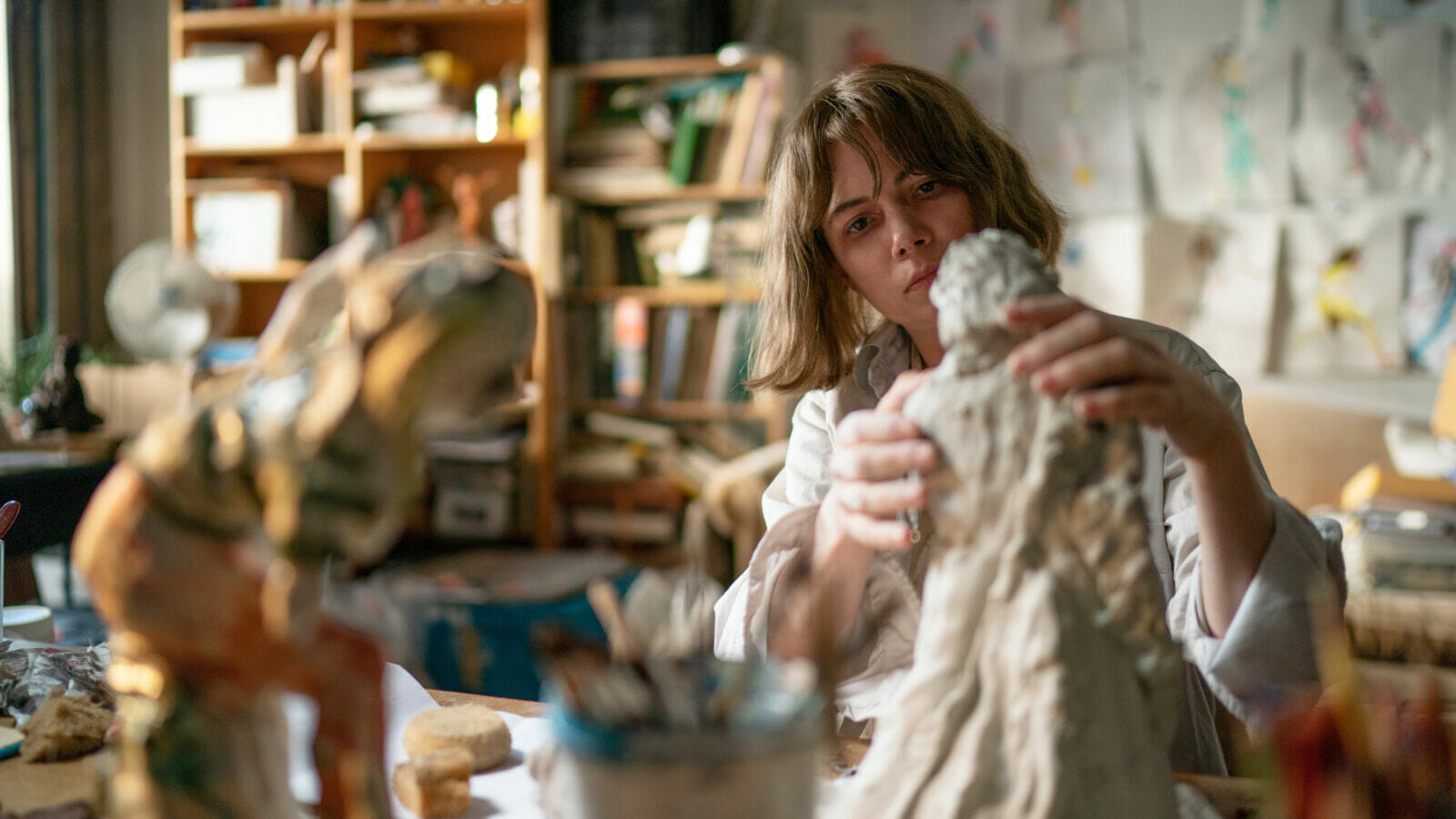The films of Kelly Reichardt are oft described as “observational”—by us boldly original critics and by Reichardt herself—and it really is a fitting label. The way her camera lingers and scans is akin to a deliberate pace through an art museum, soaking up every moment with each frame to enhance the glow of their minutiae. This approach took her previous film, the masterful First Cow, from expansion-era period piece to anthropological tapestry, weaving in detail the disconnect between human effort and capitalism. Her latest, Showing Up, is smaller in scale—as the title suggests, its focus is on the day-to-day—but its more personal concerns are just as universal.
READ ALSO: Read all of Ryan Bordow’s movie reviews here
READ ALSO: Here’s how Arizona film incentives could attract filmmakers
The film follows Portland-based sculptor Lizzy, who’s trying to prepare for an art show amid the endless hurdles of existing. For one, her landlord Jo—a fellow artist and friend in fair weather—is too busy with her shows to fix Lizzy’s water heater, leaving Lizzy unshowered in both body and soul. She’s a perpetually frumpy woman, always with something to frown about, whether it’s working for her mom or losing time to sculpt. The latter is exacerbated when Jo, after rescuing a wounded pigeon, entrusts the bird to Lizzy, given that she can work from home while Jo requires a studio. It’s all very quotidian, minus maybe the pigeon—as the subject of an artist’s reluctant nurturing, the bird carries as much symbolic weight as Reichardt’s minimalism can handle.
Michelle Williams, a Reichardt protagonist for the fourth time now, is perfectly tuned in to that allusive naturalism. Her performance is a nonverbal soliloquy: she and Reichardt have mastered the art of the reaction shot, painting on Lizzy’s face the frustrations of the art life through grimaces, groans, and dwindling supplies of grit. Her irritation is often played for humor—each reverse shot of her stone-cold gaze is a droll middle finger to whatever’s distracting her—but it’s also a reminder of the drudgery of creation. It’s hard enough to make something of your day, let alone something concrete and personal and visible to the populace, let alone while surviving a system so hostile to artists. Showing up is half the battle; the other half is keeping despair at bay.
That struggle is grounded in one of the film’s main settings, the Oregon College of Art and Craft, once described as “one of the last remaining craft-focused degree programs in the country”—before it closed for good in 2019. Reichardt shot there after its closing, giving the film a eulogistic air, but also resurrecting the school in all its little glories, the kind Reichardt excels at capturing on camera. The way the artists step unbothered over the dog at the office door, the way the kiln master shrugs off a burn as a sculpture’s silver lining—Showing Up makes the school lived-in again, itself an example of the art life gone right. It sees every side of the creative process: in each knowing or cutting remark, each exquisite or mundane frame, each silent or noisy moment, it lives in the interplay between bitter and sweet. Is life on this seesaw worth it for the art? The lens dwells on the work and lets you decide.
For all its minimalism, Showing Up builds to something like a climax: Lizzy’s show is starting, her family is making trouble, and the pigeon is at the gallery like Chekov’s gun with wings. The film does well not to snowball these conflicts—even the family drama goes understated—but it leans on the pigeon as a subtextual crutch. Reichardt is no stranger to using animals as symbols, but the wounded bird the artist tends to so it can maybe soar? It’s a little much for this slice of life. Where First Cow uses an animal as a jumping-off point, launching into an allegory for survival under capitalism, Showing Up seems to summate its themes with its avian metaphor. Even before the climactic rush of incidents, the bird is too obvious a signifier for Lizzy’s inner life.
At the film’s close, I found myself thinking of Hong Sang-soo’s Walk Up, another recent film about balancing life and art. It carries the dissonance of that “balance” through its ending, where Hong, through formal trickery and narrative ellipses, strands the characters in a more uncertain place than he’d led us to believe. Showing Up is no bastion of certainty—its final shots are rather open and reflective—but the (relatively) heightened emotions and plain symbolism of its denouement play a bit pat by contrast. Still, by building to resolution with a gentler, plainer tenor, Reichardt makes room for some muted celebration: the story is over and the work is out there; people will take it how they take it. Time to take a breath and show up for the next thing.
★★★★ (4/5)




